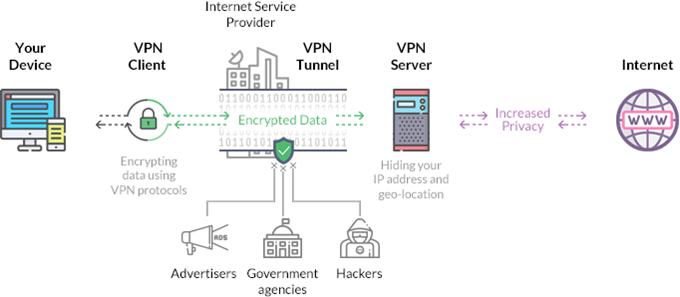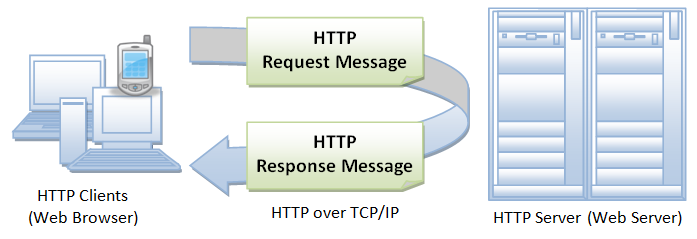A Virtual Private Network (VPN) is a technology that creates a secure and encrypted connection over a less secure network, such as the internet. It allows users to establish a private network across a public network, enabling them to send and receive data as if their devices were directly connected to the private network.VPNs encrypt the data transmitted between a user’s device and the VPN server, making it more difficult for third parties, such as hackers or government agencies, to intercept and decipher the information. This is especially important when using public Wi-Fi networks.
Enhanced Security
VPNs use encryption protocols to secure the data transmitted between the user’s device and the VPN server. This helps protect sensitive information from unauthorized access.
Secure Remote Access
VPNs enable secure access to a private network over the internet. This is particularly important for remote workers who need to connect to their company’s internal systems and data securely.
Anonymous Browsing
VPNs help users maintain anonymity online by masking their IP addresses. This can be especially important for individuals who want to protect their privacy and avoid being tracked by websites or online services.
When using public Wi-Fi networks, data transmitted is vulnerable to hacking. VPNs encrypt the data, making it more secure and protecting users from potential cyber threats on public networks.
If you want to access your home content while traveling around the world, a VPN can help. Install NordVPN on your device and never miss a friend’s post on social media.
Government agencies, marketers, and internet service providers would all love to track and collect your browsing history, messages, and other private data. Best way to hide it? Using a VPN to keep your data to yourself.
Like gaming online? You can forget about DDoS attacks and bandwidth throttling with NordVPN. Use our Meshnet feature to set up secure virtual LAN parties with your friends.
VPNs can facilitate secure file sharing among users within the network. This is especially useful for businesses that need to share sensitive data without the risk of unauthorized parties.
Watch your favorite TV shows without slowdowns. NordVPN can save your movie night by preventing your ISP from throttling your connection and safe streaming everytime.
A Virtual Private Network (VPN) is a technology that establishes a secure and encrypted connection between your device and a remote server. When you use a VPN, your internet traffic is encrypted, meaning that the data you send and receive is scrambled and secure from potential eavesdroppers. This encryption is particularly crucial when using public Wi-Fi networks, where your data might be more vulnerable to hacking attempts. By creating a virtual tunnel for your internet traffic, a VPN safeguards your information and ensures that even if someone manages to intercept it, they won’t be able to decipher the encrypted content without the proper keys.
Furthermore, a VPN enables users to mask their IP addresses. Instead of revealing your actual IP, the VPN server’s IP address is visible to the websites and online services you access. This not only enhances your privacy but also allows you to bypass geographic restrictions. For example, if a website or streaming service is restricted in your region, you can connect to a VPN server in a different location, making it appear as though you are accessing the internet from that location. This ability to circumvent geo-restrictions is a valuable feature for accessing content that might otherwise be unavailable in your location.
Moreover, a VPN provides a secure way for remote access to private networks. This is especially relevant for businesses and individuals who need to connect to their workplace networks while outside the office. By using a VPN, employees can access sensitive company data and resources securely, reducing the risk of unauthorized access. In essence, a VPN acts as a secure bridge between your device and the internet, offering a heightened level of privacy, security, and accessibility for your online activities.
A VPN establishes a secure connection between your device and a remote server by encrypting your internet traffic. When you connect to a VPN, your data is transformed into unreadable code, ensuring its confidentiality. This encrypted data then travels through a secure tunnel to the VPN server, where it is decrypted and sent out to the internet. This process not only protects your information from potential eavesdroppers on public networks but also allows you to mask your IP address. By using the VPN server’s IP address, you gain enhanced privacy, bypass geo-restrictions, and create a secure pathway for accessing the internet or private networks remotely.



Speed, Security, and Privacy
People turn to VPNs for different reasons, and whatever yours is, you need to ask three questions before choosing a provider. How fast is it? Will it keep my data safe? And will it respect my privacy? Of course, you want your connections to be safe and your data to stay private. But to have all that without losing any speed? That’s the trick. So when you choose a VPN service, make sure they don’t make any compromises – there’s no point in having unbreakable encryption if every website takes ages to load.
Paid vs. free
The price of the VPN is one of the most important factors. If a free option of any service comes up, people get immediately interested. But when it comes to free VPNs, it’s better to stay away. You’re looking for speed, security, and privacy, and with free VPNs, you’re unlikely to get any of it. These providers usually don’t invest in their server network, so their VPN connections might be unstable and leaking users’ IP addresses. They also must make money somehow – in some cases, they may resort to selling their users’ data. So instead of looking for the cheapest option, try to find a VPN provider you can trust.

Use VPN apps
NordVPN offers apps for all major platforms. It doesn’t matter if you use an Android tablet. We strongly believe that people shouldn’t struggle to protect their home network and mobile devices, so our apps are extremely user-friendly.
Configure it yourself
If you know what you’re doing, setting up your VPN just the way you want it is also an option. Bear in mind — manual setup will take more time, and mistakes are more likely to happen.
Install it on your router
Install SharkVPN on your wifi-router, and every device connected to it will be protected by bulletproof encryption. The process might seem a bit too complicated for novice users, but once you’re done, you can enjoy a safe internet connection without interruptions.